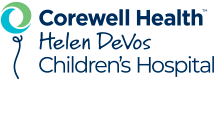Heart Disease
You know how important your heart is, so it's no wonder people worry when they hear someone has heart problems.
Heart disease, also called cardiovascular (say: kar-dee-oh-VAS-kyoo-lur) disease, mainly affects older people and means that there are problems with the heart and blood vessels.
You might know someone who has cardiovascular disease because more than 60 million Americans have some form of it. This disease includes a variety of problems, including high blood pressure, hardening of the arteries, chest pain, heart attacks, and strokes.
What Is Heart Disease?
The heart is the center of the cardiovascular system. Through the body's blood vessels, the heart pumps blood to all of the body's cells. The blood carries oxygen, which the cells need. Cardiovascular disease is a group of problems that occur when the heart and blood vessels aren't working the way they should.
Here are some of the problems that go along with cardiovascular disease:
- Arteriosclerosis (say: ar-teer-ee-oh-skluh-ROW-sus): also called hardening of the arteries, arteriosclerosis means the arteries become thickened and are no longer as flexible.
- Atherosclerosis (say: ah-thuh-row-skluh-ROW-sus): a buildup of cholesterol and fat that makes the arteries narrower so less blood can flow through. Those buildups are called plaque.
- Angina (say: an-JY-nuh): people with angina feel a pain in the chest that means the heart isn't getting enough blood.
- Heart attack: when a blood clot or other blockage cuts blood flow to a part of the heart.
- Stroke: when part of the brain doesn't get enough blood due to a clot or a burst blood vessel.
How Do You Get Heart Disease?
Heart disease isn't contagious — you can't catch it like you can the flu or a cold. Instead, certain things increase a person's chances of getting cardiovascular disease. Doctors call these things risk factors.
Some of these risk factors a person can't do anything about, like being older and having other people in the family who have had the same problems. But people do have control over some risk factors — smoking, having high blood pressure, being overweight, and not exercising can increase the risk of getting cardiovascular disease.
What Are the Signs of Heart Disease?
Many people do not realize they have cardiovascular disease until they have chest pain, a heart attack, or stroke. These kinds of problems often need immediate attention and the person may need to go to the emergency department of a hospital.
If it's not an emergency and a doctor suspects the person could have cardiovascular disease, the doctor can do some tests to find out more about how the heart and blood vessels are working. These tests include:
- Electrocardiogram (say: eh-lek-tro-KAR-dee-uh-gram). This test records the heart's electrical activity. A doctor puts the patient on a monitor and watches the machine to see the heart beat and determine if it's normal.
- Echocardiogram (say: eh-ko-KAR-dee-uh-gram). This test uses sound waves to diagnose heart problems. These waves are bounced off the parts of the heart, creating a picture of the heart that is displayed on a monitor.
- Stress test. For this test, the person exercises while the doctor checks the electrocardiogram machine to see how the heart muscle reacts.
- Catheterization (say: kah-thuh-tuh-ruh-ZAY-shun). In this test a long, thin tube is inserted into the patient's body to inject a special dye, which can show narrowed areas in arteries due to plaque buildup and find other problems.
- Carotid (say: kuh-RAH-tid) artery scan. This test uses sound waves to check for blockages in the carotid artery, a large blood vessel in the neck that supplies blood to the brain.
Surgeries
If a patient has cardiovascular disease, the doctor will talk about how stopping smoking, losing weight, eating a healthy diet, and getting exercise can help. The person also may need to take medicine, have surgery, or both.
There are different surgeries for the heart and blood vessels. These include:
- Angioplasty (say: AN-jee-uh-plas-tee). This opens a blocked vessel by using a balloon-like device at an artery's narrowest point. The doctor may also insert a stent, which is a tiny, stainless steel tube that props the vessel open and makes sure it stays clear.
- Atherectomy (say: ath-uh-REK-tuh-mee). This involves cutting the plaque out of an artery, so blood can flow freely.
- Bypass surgery. This involves taking part of an artery or vein from another part of the body (like the arm or leg) and using it to channel blood around a blocked area in an artery.
- Pacemakers. A pacemaker is a small electronic device that's put inside the body to regulate the heartbeat.
- Valve replacement. If a heart valve is damaged or isn't working, a surgeon can replace it.
- Carotid endarterectomy (say: en-dar-tuh-REK-tuh-me). During this procedure, a surgeon removes plaque deposits from the carotid artery to prevent a stroke.
If someone you know is getting one of these operations, you might feel worried. The good news is that these surgeries can help prevent heart attacks, strokes, and other problems. The amount of time the person will need to spend in the hospital will vary, depending on the operation and the person's health. The person may be tired and worn out after the surgery, but you can help by making a "Get Well" card and paying a visit.
Can Kids Get Heart Disease?
Kids usually don't have any symptoms of heart and blood vessel problems. But by starting heart-healthy habits right now, kids can reduce the chance they will ever need to worry about cardiovascular disease.
So what should you do? Don't smoke, for one. And be sure to eat healthy, exercise, and maintain a healthy weight. Your heart and blood vessels will thank you later!
